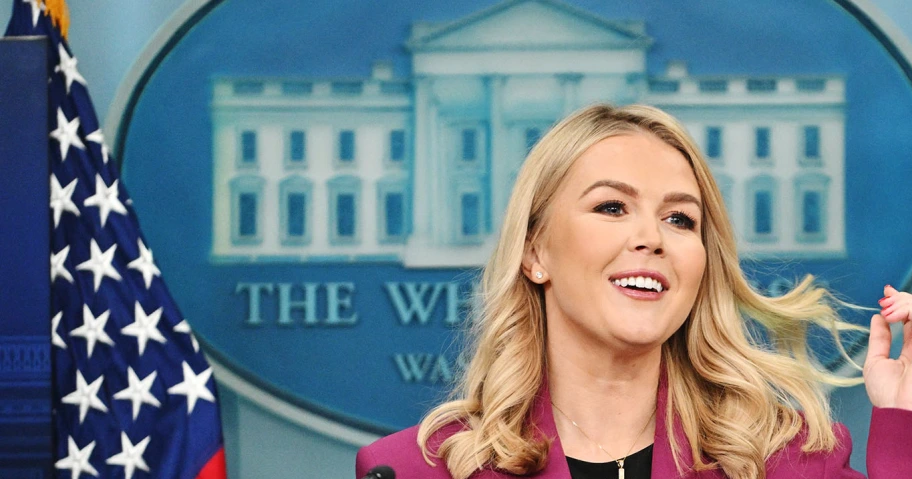Karoline Leavitt’s timing could’ve been better. On Monday night, the White House budget office ordered a freeze to federal grants, loans and related assistance — money that Congress has already appropriated — sparking widespread confusion and chaos. Less than a day later, the new White House press secretary held her first-ever briefing.
Pressed to defend the administration’s legally dubious agenda, Leavitt told reporters, “This is a temporary pause and a freeze to ensure that all of the money going out from Washington D.C. is aligned with the president’s agenda.” She used similar phrasing a couple of additional times, emphasizing that the White House is trying to ensure that federal spending is consistent with Donald Trump’s “agenda.”
But that’s less of a defense and more of a confession. In the United States, administrations sometimes have to implement spending bills that presidents don’t like. It’s how the American government functions — and has always functioned — under our constitutional system.
Trump, like his predecessors, isn’t in a position to make unilateral decisions and judgment calls about whether, and to what degree, congressionally approved federal expenditures are in line with his preferences. The law gives the power of the purse to lawmakers, and that law was not repealed on Election Day 2024.
Leavitt’s comments, in other words, effectively confirmed the allegations at the root of the scandal, though she tried to package the admission with wording that sounded benign, as if such radicalism were routine.
Around the same time, however, a reporter asked the new White House press secretary, “[H]ow is the Trump administration recommending that organizations that rely on federal funding make payroll and pay their rent [during the freeze]?” Leavitt responded:
It is a temporary pause and the Office of Management and Budget is reviewing the federal funding that has been going out the door. … I also spoke with the incoming director of OMB this morning and he told me to tell all of you that the line to his office is open for other federal government agencies across the board. And if they feel that programs are necessary and in line with the president’s agenda, then the Office of Management and Budget will review those policies.
So to review, if you work at an institution whose funding would be frozen under the White House’s policy, you should call Russ Vought — Trump’s choice for OMB chair, who has not yet been confirmed by the Senate — and he’ll take a look at your request.
If Vought — for now, a private citizen with no legal or governmental authority — decides that the congressionally approved funding is consistent with Trump’s political vision, there probably won’t be a problem. If Vought reaches the opposite conclusion, good luck to you.
Of course, given the volume of likely calls to the not-yet-in-office OMB director, you might also have to wait a while before Vought gets to your voicemail message.
Responding directly to the press secretary’s comments, Democratic Sen. Brian Schatz wrote via Bluesky, “We passed a law. They don’t get to force people to petition the king for mercy. We are still a democracy.”
Whether the courts ultimately agree remains to be seen. Watch this space.




